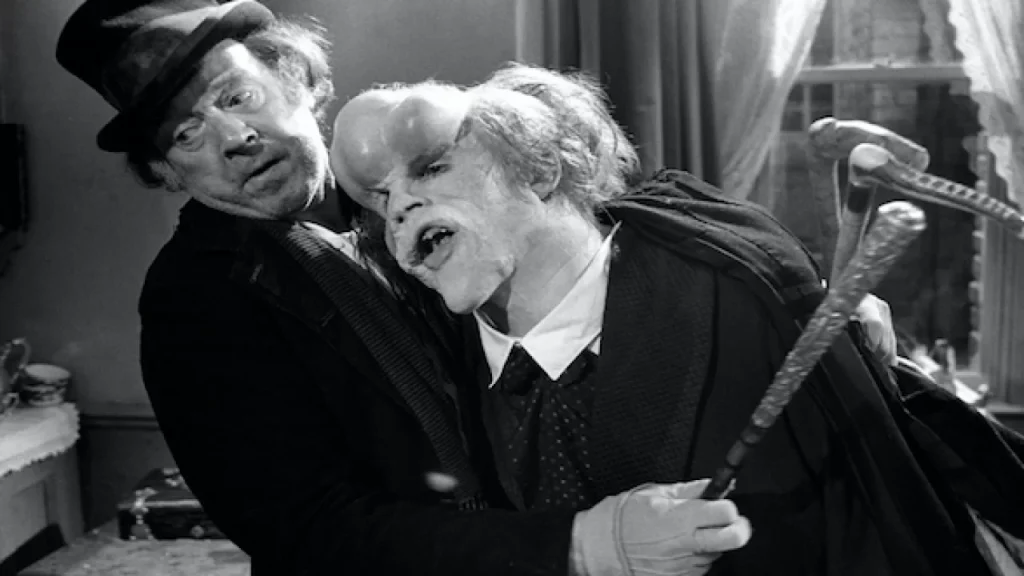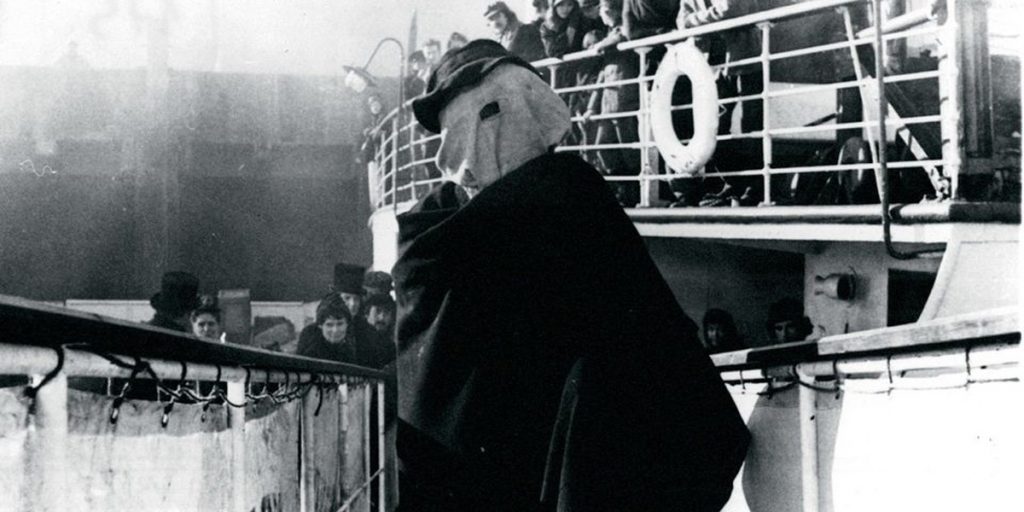Tender, wonderfully acted, and profoundly moving, The Elephant Man is a unique ray of sentimentality in David Lynch’s oeuvre.
The Elephant Man is a bit of a strange outlier in director David Lynch’s storied filmography. Created long before his ascension into the twentieth century’s pantheon of great directors, long before Twin Peaks and even before the debacle of Dune, The Elephant Man is a fairly straight-laced, self-serious biopic drama in a vein Lynch is not known for exploring particularly often. The Elephant Man is about as far from what you might expect from a collaboration between Lynch and executive producer Mel Brooks as it’s possible for a movie to be: made immediately following the success of his debut picture Eraserhead, there is little of the gung-ho surrealism of Lynch’s best known works (although it is not entirely absent). The Elephant Man nonetheless represents one of the director’s greatest accomplishments in chronicling the darker side of human nature, balanced out with almost uncharacteristic sentimentality.
The film is a slightly fictionalised retelling of the life of Joseph Merrick (here called John Merrick, portrayed by the great John Hurt), a severely deformed man who was presented in circus sideshows in Victorian England. Cruelly mistreated by his manager, Merrick is discovered by anatomist Frederick Treves (Anthony Hopkins) and wheeled out before London’s aristocratic medical elite. When Treves attempts to teach Merrick to speak, believing him to be imbecilic, he discovers that Merrick is perfectly intelligent, and more than capable of communication, leading to his presentation in front of England’s high society and introduction to sympathetic stage actress Madge Kendal (Anne Bancroft). While Merrick begins to adapt to his newly public persona, Treves and the staff at the London Hospital begin to fear that, by placing Merrick on show, they may be little better than the freak show proprietors they had rescued Merrick from.

The Elephant Man may not be the all-curing panacea to ableist prejudice that some contemporary critics seemed to believe it would be, but it deals with the theme with an impressive sensitivity for the time of its release. It takes a strongly moralising but nuanced position when thinking about the fear that sparks such hatred, but also makes surprisingly even-handed commentary on the patronising nature of outreach for the sake of self-satisfaction. Merrick’s story is also used as an entry point to a wider-reaching discussion of prejudice’s source in a fear of the unknown, and the effective, if not entirely satisfactory, role of hierarchical pressure in enacting societal change; many of the film’s upper classes only begin to accept Merrick with a great deal of reluctance under pressure from those in a societally superior position of power. Merrick is very rarely treated as a human being, even by those who purport to welcome him into their communities, except for those who make the effort to listen to what he has to say.
These themes are borne out in the film’s production with a characteristic directorial confidence. Merrick’s face is kept hidden for much of the film’s first act – he is shown fearfully, from a distance, and at quick camera glances that snap away as if to avoid eye contact. The treatment of Merrick’s disfigurements is similar to how villains may be presented in horror movies, with the camera lingering more on character’s reactions than on Merrick himself, and it is only as Treves and Merrick make breakthroughs in communication throughout the movie that the directorial approach changes, as Merrick slowly begins to experience the same cinematographic treatment that any of the film’s other figures may enjoy. In tandem, Lynch’s rare indulgences in the more surrealist side of his filmmaking come in the form of dream sequences and montages, often focusing on the death of Merrick’s mother, shot from Merrick’s own point of view and thus further pushing the audience towards empathy. In some filmmakers’ hands, the approach may be heavy-handed and distasteful, but Lynch handles it with a deftness unbecoming of a sophomore feature.
Of course, this sympathetic approach is bolstered by a performance widely appreciated, both contemporaneously and in the modern day, as one of John Hurt’s very finest. Under thick, heavy layers of prosthetics that famously took hours upon hours to apply and remove each day, Hurt is limited to the use of only his eyes and mouth to communicate the diversity of emotions required from the film’s protagonist and finds remarkable levels of success in doing so – without a multi-dimensional portrayal of Merrick himself, the film’s attempt at a sympathetic characterisation would surely fall flat. Hurt’s casting in the role also highlights a decision that would surely not have been made today: Hurt’s role represents an opportunity where prosthetics are a less appropriate solution than the casting of disabled actors, and while Hurt is more than capable, this represents a filmmaking decision that marks the film as, generously speaking, ‘of its time’.
However, it is undeniable that the film approaches the subject from a position of respect for the inherent dignity of Merrick’s story. The Elephant Man is far from a caricature; nor is it overly patronising towards Merrick himself, instead directing its moralisations at the more deserving figures of audiences, both the Victorian masses depicted in the film and the modern day moviegoers who gather to gawk themselves. It also represents Lynch’s mastery of surrealism as more than an end in and of itself, instead utilising it as a means towards his thematic goals. It may have come remarkably early in the filmmaker’s career, and it may have represented a film that, in the long run, sits conspicuously out of place amongst the director’s greatest hits, but there is plenty present in The Elephant Man to highlight just how effective and adaptable Lynch can be – and exactly why he is deserving of the respect that the industry has bestowed upon him.

